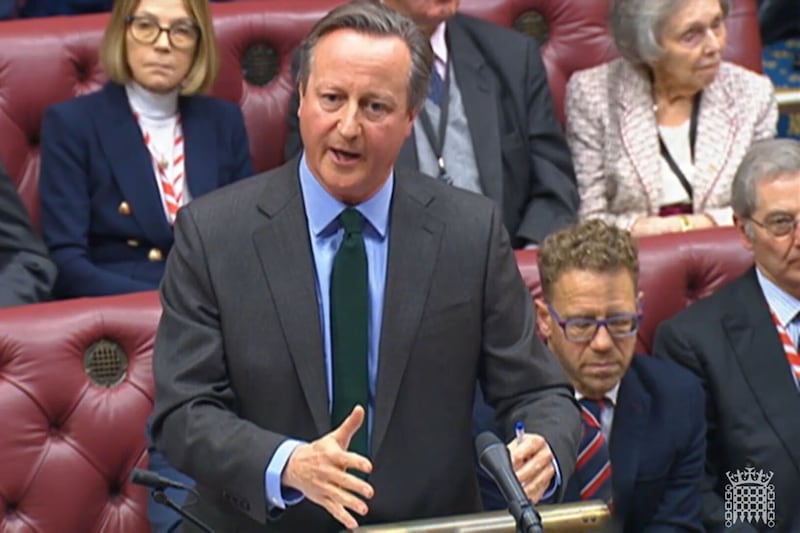AFTER days of sabre-rattling over the Northern Ireland Protocol at the Conservative Party conference in Manchester, the most telling contribution came in Boris Johnson's much-awaited main speech on Wednesday: precisely nothing.
The prime minister's 45-minute address on the state of the nation and his government's priorities managed somehow to omit any mention of Article 16, the Irish Sea border, the European Union or Brexit itself, a remarkable feat for an issue that continues to cast such an enormous shadow over British and Irish politics.
Earlier in the week, Brexit minister Lord Frost had demanded "significant change" to the agreement he negotiated himself that keeps Northern Ireland in the EU's single market for goods, as a way of avoiding a hard border on the island.
He again invoked the nuclear option of triggering Article 16 of the protocol, which would suspend elements of the Brexit deal.
DUP leader Sir Jeffrey Donaldson, who has likewise threatened to bring down the devolved institutions within weeks if his demands are not met, professed himself satisfied that the government was moving in the right direction.
He has somehow gambled his political future on the removal of the Irish Sea border, despite voluminous evidence showing Boris Johnson cannot be trusted to keep promises and will happily sacrifice unionist interests to satisfy voters closer to home.
The EU wisely waited until the week's political theatre had passed before confirming it will table new proposals in the coming days to resolve issues around the operation of Northern Ireland Protocol.
It envisages intensive discussions on customs checks and medicine supplies over the next weeks, with a view to practical solutions being in place by the new year.
It is by now abundantly clear that this solution will not involve the wholescale rewriting of the protocol as demanded by Lord Frost or the DUP.
The reality, as Maros Sefcovic set out yesterday, is that the protocol is a solution to the challenges caused by Brexit rather than the problems itself.
Restating the EU's commitment to the Good Friday Agreement, the European Commission vice president said the time has come to move from the "the threats we hear all the time, down to the business that actually solves the problems".
The sooner the unhelpful rhetoric of this week is left behind and that hard work begins, the sooner the focus will finally shift from the protocol.







